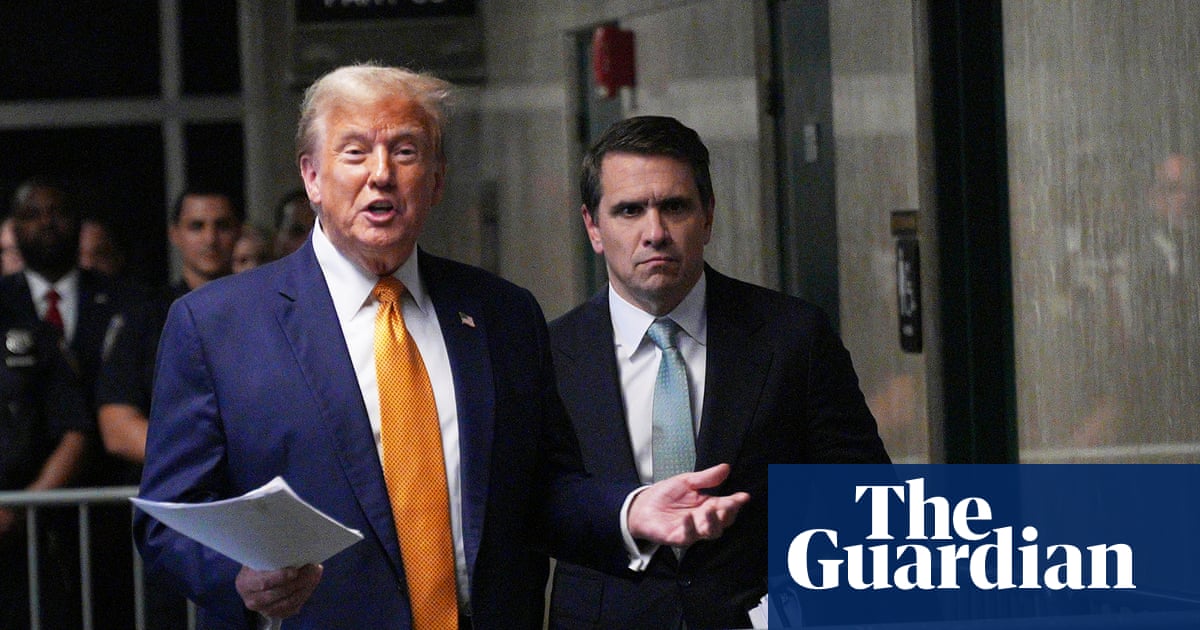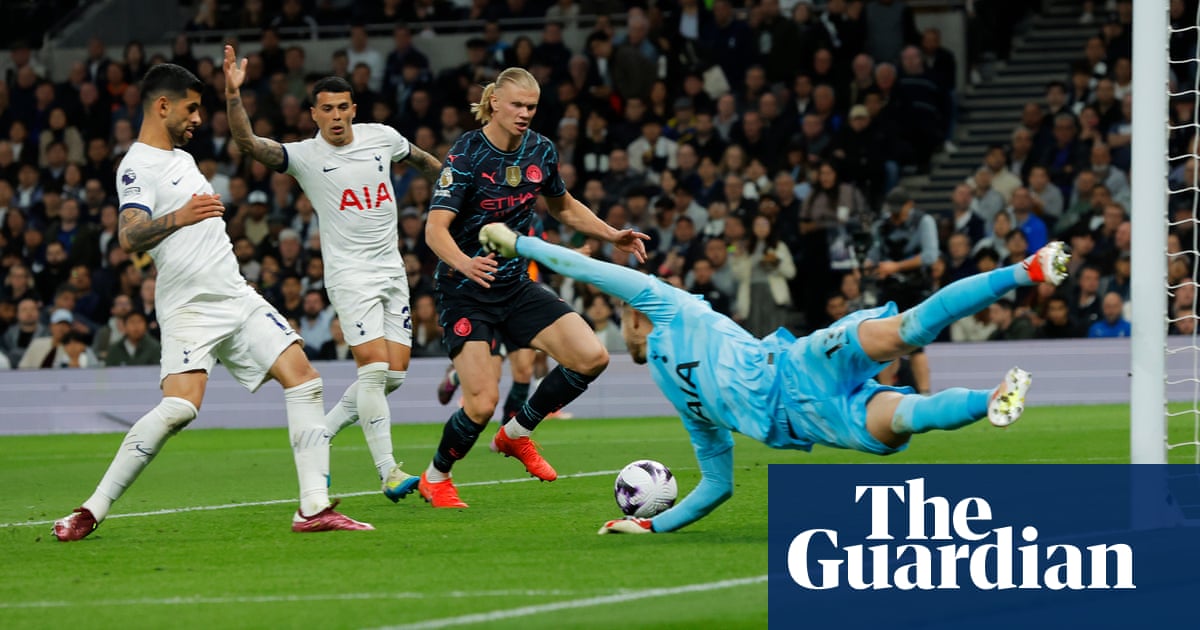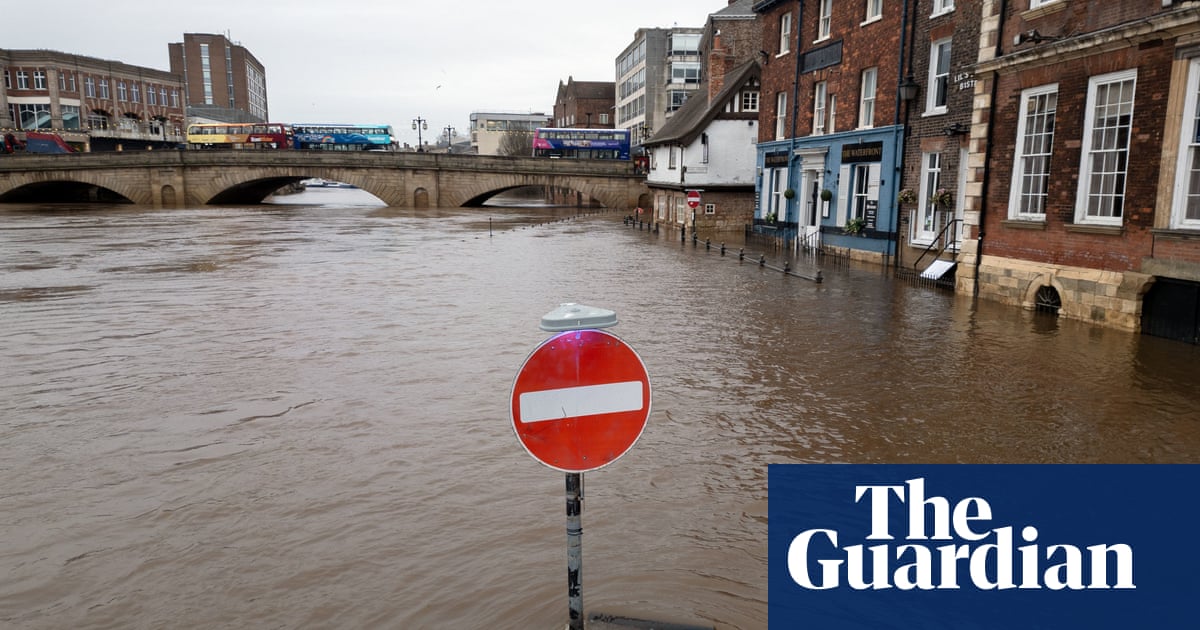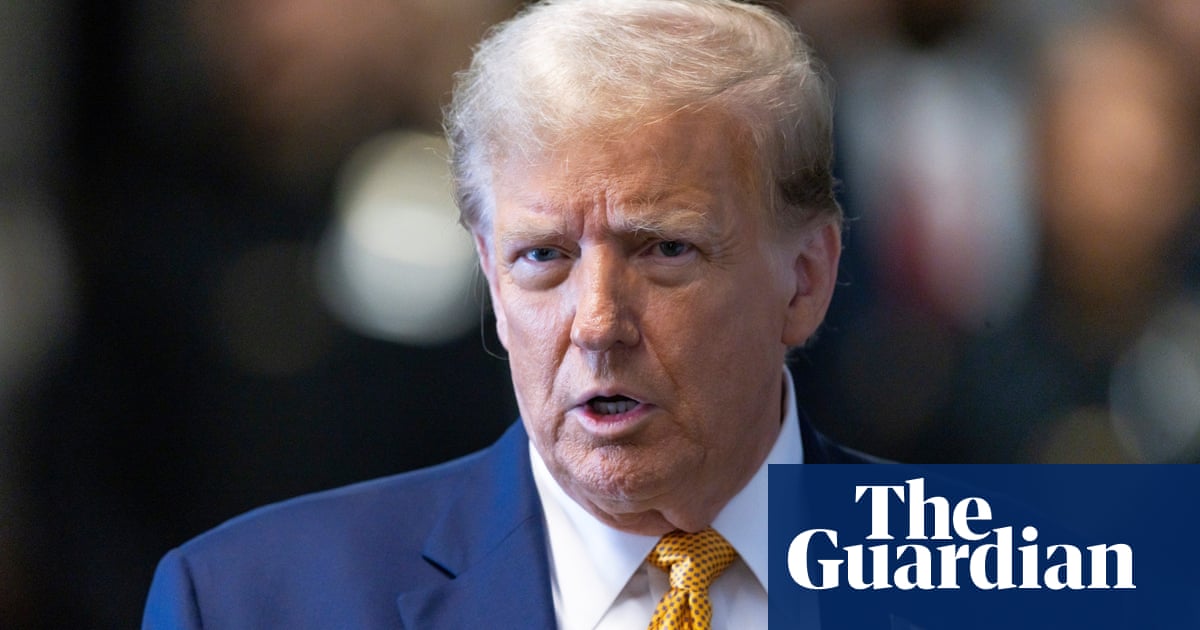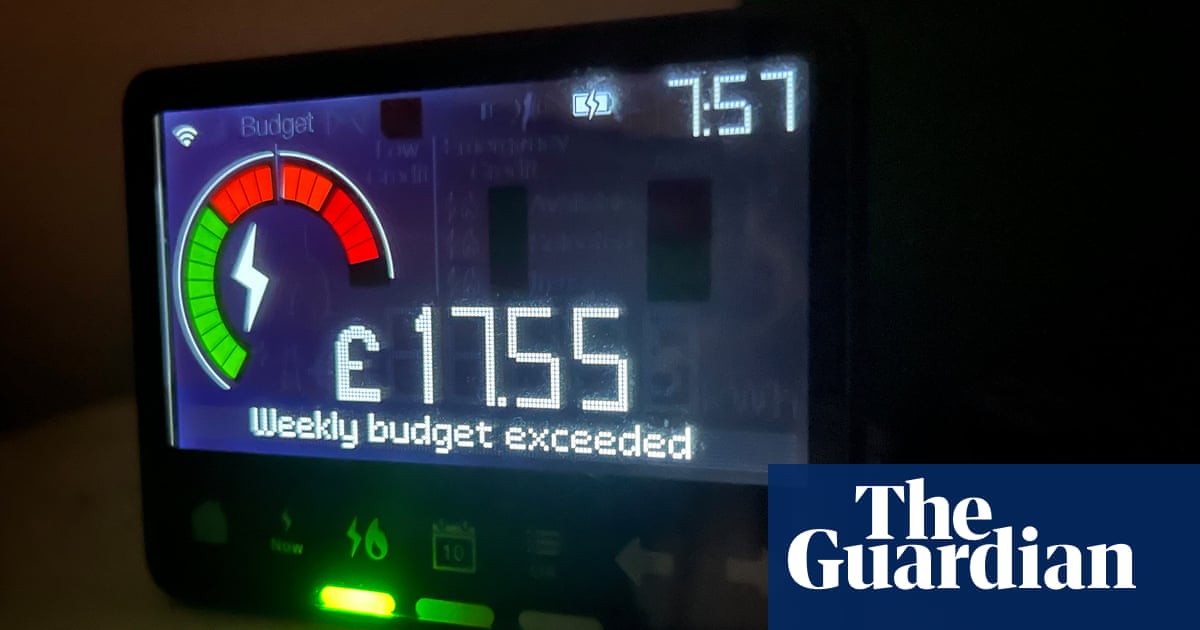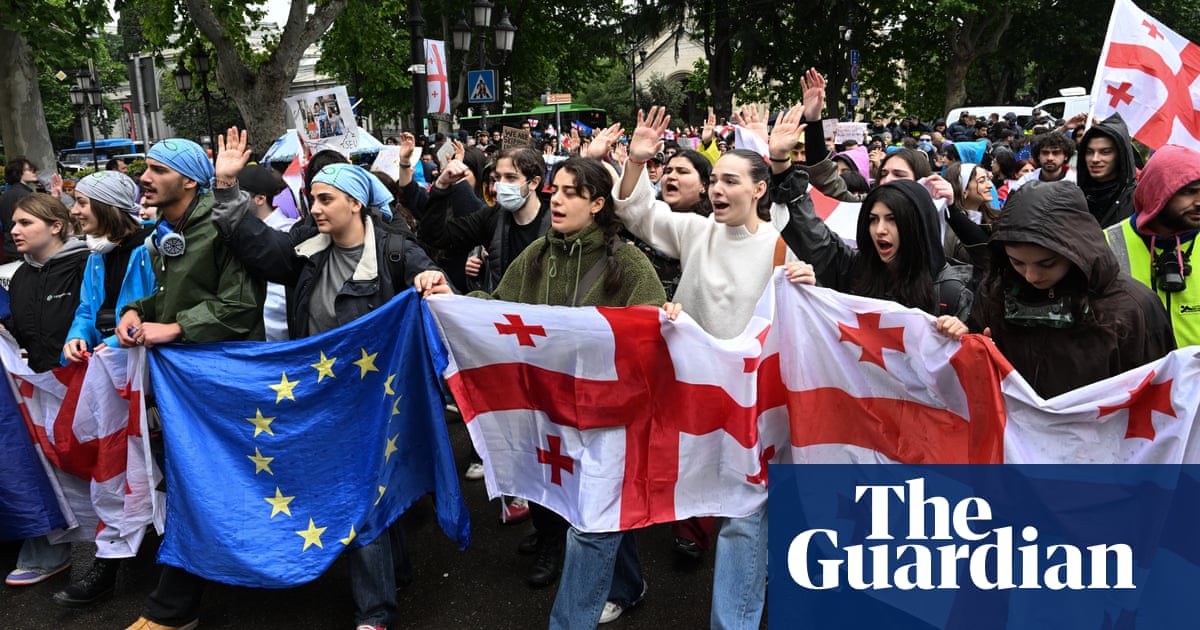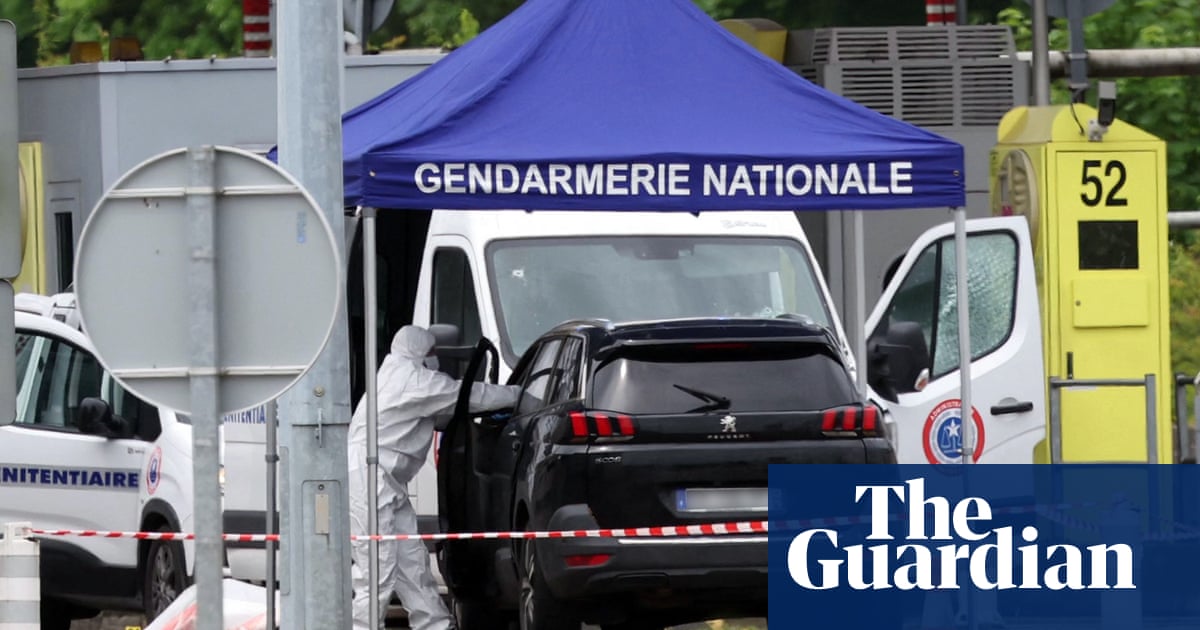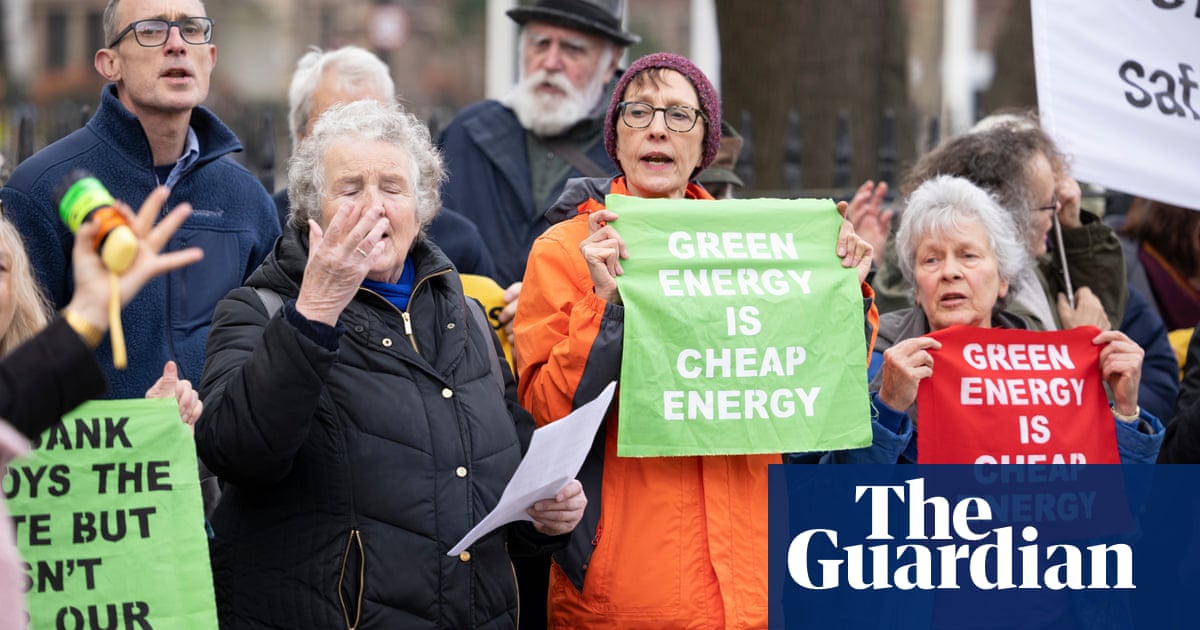âMr Trump, is Todd doing a good job?â
So shouted a pool reporter outside a Manhattan courtroom Tuesday afternoon shortly after Trumpâs lead attorney, Todd Blanche, started cross examining former fixer turned prosecution witness, Michael Cohen, in his criminal hush-money trial.
Trump did not reply to that question.
Indeed, this was the same question on everyoneâs mind during cross-examination. Blanche tried to lob gotcha questions at Cohen. In turn, Cohen would retort with brief responses, spurring full-throated laughter in the overflow viewing room.
âOn April 23, you went on TikToK and called me a âcrying little shit?ââ Blanche asked, in the first of many an awkward salvo.
âSounds like something I would say.â
âAfter the trial started, you referred to President Trump as a âdictator douche bagâ, didnât you?â Blanche asked at another point, referring to one of Cohenâs social media posts.
âSounds like something I said.â
Did Cohen say he wanted to see Trump convicted, in a cage, âlike a fucking animal?â
âI recall saying that,â Cohen said.
Did he call Trump a âboorish cartoon misogynist?â A âCheeto-dusted cartoon villain?â
Cohen, calm as ever, similarly confirmed these statements sounded like things he would say.
To be clear, Blancheâs attempt to trip up Cohen by pointing out animosity toward Trump makes sense strategically. Prosecutors allege that Trump cast reimbursement for a $130,000 hush-money payment to the porn star Stormy Daniels as legal expenses for Cohen, constituting falsification of business records.
Cohenâs testimony put Trump squarely at the center of this alleged scheme, with him telling jurors Tuesday that he paid Daniels âto ensure that the story would not come out, would not affect Mr Trumpâs chances of becoming president of the United Statesâ
âAt whose direction, and on whose behalf, did you commit that crime?â prosecutor Susan Hoffinger asked him.
âOn behalf of Mr Trump,â Cohen said.
So Blanche needs Cohen to look bad, to mitigate the damage of these statements.
âYou were actually obsessed with President Trump, werenât you?â Blanche asked.
âI donât know if I would characterize it as obsessed, but I admired him tremendously.â
âYou publicly said he was a good man?â
Yes.
âYou said that heâs a man who cares deeply about this country?â
âI said that,â Cohen responded.
âThat heâs a man who tells it straight?â Cohen said, âYes, sir.â
âAnd that all he wants to do is make this country great again?â
âSounds right.â
âAt that time, you werenât lying, right?â
âAt that time, I was knee-deep into the cult of Donald Trump, yes,â Cohen said.
Blanche asked Cohen about items that are shown on his podcastâs website, including a shirt with Trump in an orange jumpsuit, which he showed in court. He also showed a photo of a coffee mug that reads: âSend him to the Big House not the White House.â
Thatâs also a reference to President Trump, correct?
âCorrect,â Cohen said.
Didnât Cohen wear that shirt on his TikTok channel last week? Wasnât he encouraging people to buy it?
âAt the merch store,â Cohen said.
Even when Blanche got Cohen to admit that he wanted to see Trump convicted, he answered with a comically underwhelming: âSure.â
So eyebrow-raising were Blancheâs initial questions to Cohen â what did he say about him, the attorney, and his associate, another Trump attorney? â that Judge Juan Merchan appeared irked.
âWhy are you making this about yourself?â Merchan asked Blanche during a sidebar after this first set of questions. Blanche, for that matter, insisted, âIâm not making it about myself, your honor,â and said he had the right to press Cohen on bias against both his client and lawyers.
âPlease, donât make it about yourself,â Merchan instructed at the sidebarâs conclusion.
Trump, who appeared to nod off repeatedly throughout Cohenâs testimony, did not seem disturbed by the dayâs developments. As he left court for the day, Trump told the reporter pool: âIt was a very, very good day.â
Blanche will resume his cross-examination of Blanche on Thursday. He told the court that he expects his cross will take all day.
